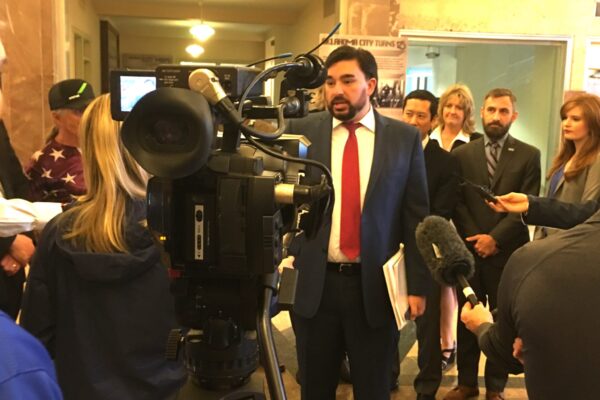People Incarcerated Rights

A culture of punishment, combined with race- and class-based animus, has led the United States to rely on incarceration more heavily than any other country in the world does. The politicization of criminal justice policy and a lack of evidence-based assessment result in a one-way ratchet in which law and policy grow ever more punitive. The human and financial costs of mass incarceration are staggering, and the burden falls disproportionately on the poor and people of color. However, the recent fiscal crisis and years of falling crime rates have combined to create the best opportunity in decades to challenge our nation’s addiction to incarceration.
Far too many prisoners are held in conditions that threaten their health, safety, and human dignity on a daily basis. Tens of thousands of prisoners are held in long-term isolated confinement in “supermax” prisons and similar facilities. The devastating effects of such treatment, particularly on people with mental illness, are well known. Prisoners are a population with significant medical and mental health needs, but prisoner health care services are often abysmal, in many cases leading to needless suffering, disability, and death, as well as a serious threat to public health when contagious disease goes undiagnosed or untreated.
Prisoners’ rights to read, write, speak, practice their religion, and communicate with the outside world are often curtailed far beyond what is necessary for institutional security. Not only are these activities central to the ability of prisoners to retain their humanity, but they also contribute to the flow of information between prisons and the outside world and thus provide a vital form of oversight of these closed institutions.
The Latest

Oklahoma House’s Shameful Scuttling of Criminal Justice Reform Measures
OKLAHOMA CITY--Blame for the Oklahoma House’s shameful last-minute scuttling of monumental criminal justice reform measures with overwhelming bipartisan support falls squarely on House leadership. Despite having a clear mandate from voters to reverse the unsustainable and destructive course of Oklahoma’s overly harsh, discriminatory, and counterproductive criminal justice system, House leaders tucked tail and capitulated to out of touch, taxpayer subsidized lobbying groups. While the public face of this cowardly act of obstructionism has been Rep. Scott Biggs, R-Chickasha, a deeper scorn should be directed at House Speaker Charles McCall, R-Atoka. Speaker McCall may have for the time being escaped blame for this embarrassment, but history will hold him accountable. Only the weakest of Speakers would pretend that obstinate committee chairs like Biggs are beyond their control. There is only one member of the House of Representatives who has the power to keep the entire body from casting an up or down vote on any bill and that is the Speaker of the House. “This is a transformative moment for criminal justice reform and legislators had an opportunity to seize that momentum and be leaders in ending the suffering Oklahomans are enduring daily in a state criminal justice system that has reached crisis-level status,” said Ryan Kiesel, Executive Director at the ACLU of Oklahoma. “But instead of leading, they capitulated to a small group of politicians whose political and financial interests are married to the broken status quo. By killing this widely-supported plan, Speaker McCall subverted the will of the voters, ignored his own membership and disrespected an overwhelming coalition of supporters who came together to demand action before it is too late. Speaker McCall should be as ashamed of himself as many Oklahomans – including his own colleagues – are of him.” A package of bills recommended by the Governor’s Criminal Justice Reform Task Force advanced through the Legislature with strong support early in session. Governor Fallin herself played a consistent leadership role through this whole session. By recognizing the need for immediate reforms, proposing thoughtful, evidence based solutions to our crisis, and using her political capital to push a smart justice agenda, the Governor has proven her commitment to this worthy cause. In another catastrophic budget year, the bills presented a chance to save nearly $2 billion in ineffective corrections spending by reforming Oklahoma’s justice system to resemble the more humane, cost-effective systems other states and countries have adopted with proven success. Despite overwhelming support for these evidence based reforms, in the final month of session, McCall and Biggs tried to quietly sweep those bills under the rug. When it blew up in their faces the last week of session, they doubled down and killed the bills.“It appears the supposed support for reform House leadership expressed this session was a lie all along. It is not hard to conclude that Speaker McCall planned the demise of this proposal months ago, but strung it along under false pretenses as a negotiation chip to extract what he wanted from the Senate and Governor Fallin this session, all the while cultivating a public image of someone committed to reforms. It was politics at its worst, and voters should not forget it,” Kiesel said. “These antics combined with the shell game that was played with teacher pay raises this session offer hard evidence that the majority in the House of Representatives are working to actively deceive the people of Oklahoma by hiding what they're actually up to.” How it happened

49 Oklahomans Serving Life Without Parole for Nonviolent Offenses, Finds ACLU
OKLAHOMA CITY – In the first-ever study of people serving life without parole for nonviolent offenses in the United States, the ACLU found at least 3,278 such prisoners in federal and state prisons combined; 49 of whom are serving life without parole for nonviolent offenses in Oklahoma.

ACLU of OK RESPONDS TO ANONYMOUS ANALYTICS REPORT ON CORRECTIONS CORPORATION OF AMERICA
“Today’s report from Anonymous Analytics only confirms what we have known in Oklahoma for sometime now; private prisons are a bad investment. Normally, I would say a business model that depends upon politicians making short-sighted, self-serving policy decisions would be a sound investment, but it is becoming more clear by the day that the private prison industry is a bad investment for states and shareholders alike. We urge policymakers to reconsider their appetite for private prisons and instead focus their attention on actual criminal justice reforms that make us safer and protect our tax dollars.”

Oklahoma State Senate offers modest reforms to our broken criminal justice system and overincarceration crisis
In response to the passage of House Bill 3052 by the Oklahoma State Senate, the American Civil Liberties Union of Oklahoma released the following statement:
April 26, 2012
FOR IMMEDIATE RELEASE
Contact: Ryan Kiesel, Executive Director, ACLU of OK, 405.524.8511, rkiesel@acluok.org
“Before HB 3052 arrived in the Oklahoma State Senate it offered modest reforms to our broken
Stay Informed
Sign up to be the first to hear about how to take action.
By completing this form, I agree to receive occasional emails per the terms of the ACLU’s privacy statement.
By completing this form, I agree to receive occasional emails per the terms of the ACLU’s privacy statement.
